Will Stevens Q&A: 2015 performances prove I belong in F1
After a one-off race with Caterham in Abu Dhabi last year, Will Stevens’ first full F1 season got off to an inauspicious start in Australia when his Marussia squad failed to make it out of the garage. Since then the Briton has put his head down and quietly delivered some solid under-the-radar performances, earning the praise of team hierarchy amongst others. In a wide ranging interview Stevens discusses the difficulties of running towards the back of the field, the positive impact of recent upgrades, and why he hopes his performances will pave the way for a long F1 career…
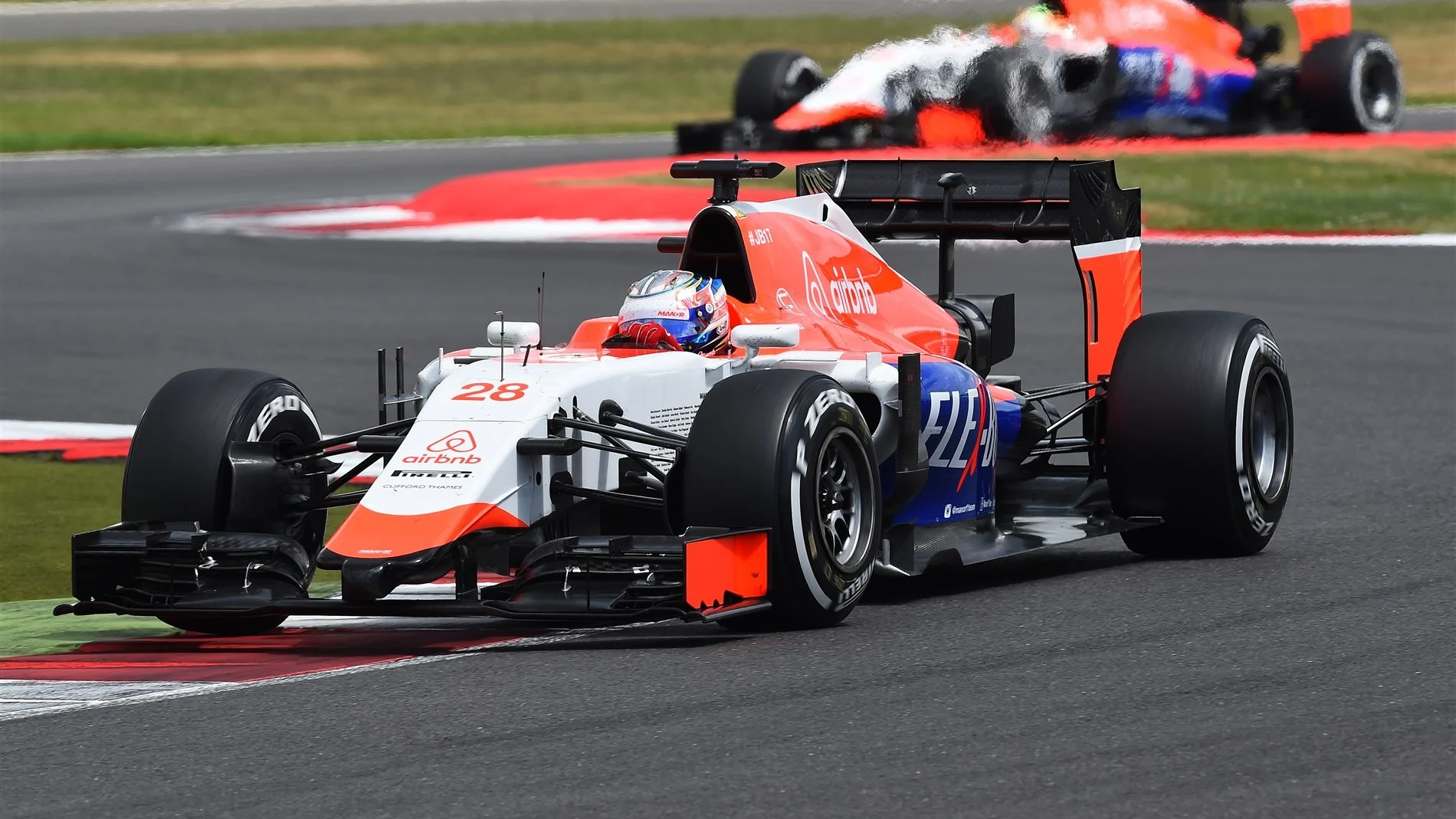
As soon as we put updates on the car I could feel an improvement straight away to the balance.
Q: You received your first real upgrades of the season at Silverstone. How did it feel to finally get some developments on the car?
Will Stevens: The updates had been planned for a while, and as soon as we put them on the car I could feel an improvement straight away to the balance. As soon as you start putting things on like that it just gives you more confidence as a driver to push hard. So the updates are working really well, and it’s a really good job from the team to get them working straight away. It just shows the direction we’re going in and that we really are improving. Silverstone is a high speed track with long straights and you’d have thought it wouldn’t suit us compared to the other cars, but it was the closest we’d been all year. So it really does show that the upgrades worked.
Q: What do the upgrades do for you from a psychological perspective? It must have felt good to know that you were being given more of a chance to fight…
WS: Yeah exactly. You can tell now when we’re on circuit and around other cars that we’re a lot closer. It’s good to know that we’re closer than we were before.
Q: Of course the reality is that you do spend most of the time running towards the back of the field, and that brings with it its own unique set of challenges, doesn’t it?
WS: Yeah, I mean obviously it doesn’t matter where you are on the grid, you always have to do a professional job and always achieve the maximum that you possibly can - not just for yourself but for the team as well. So far I think I’ve done that and the year’s gone really well for me. You speak to guys up and down the pit lane who have experienced being at the front and at the back, and everyone talks about blue flags. That’s actually a really important side of our race: to be able to lose as little time as possible. Every time a car comes past, if you’re losing more time than you should, over a race distance when you’re getting maybe 20-25 blue flags, that could be 20-25 seconds that you lose. So it’s really important to know when and how to let people past in order to lose the least amount of time. At the end of the day they’re lapping us and we need to let them by as quickly as possible, but we need to manage the situation to do it in the best possible way we can.
Q: Speaking of blue flags, there was the incident in Canada where Romain Grosjean took part of your front wing off while lapping you. Did he ever apologise?
WS: Yeah he came over when we got to the next race in Austria. He apologised and just accepted that he misjudged the situation. Stuff like that should never happen but it’s one of those things; it’s a racing incident and he obviously thought he was past me when he wasn’t. Everyone is racing and concentrating on their own race, and their priority is obviously to get past, but we can only leave as much room as we can - we need to stay on the track. The job is for them to get past us cleanly. So it was disappointing that it happened, but it’s just one of those things - we’ll both learn from it and move on.
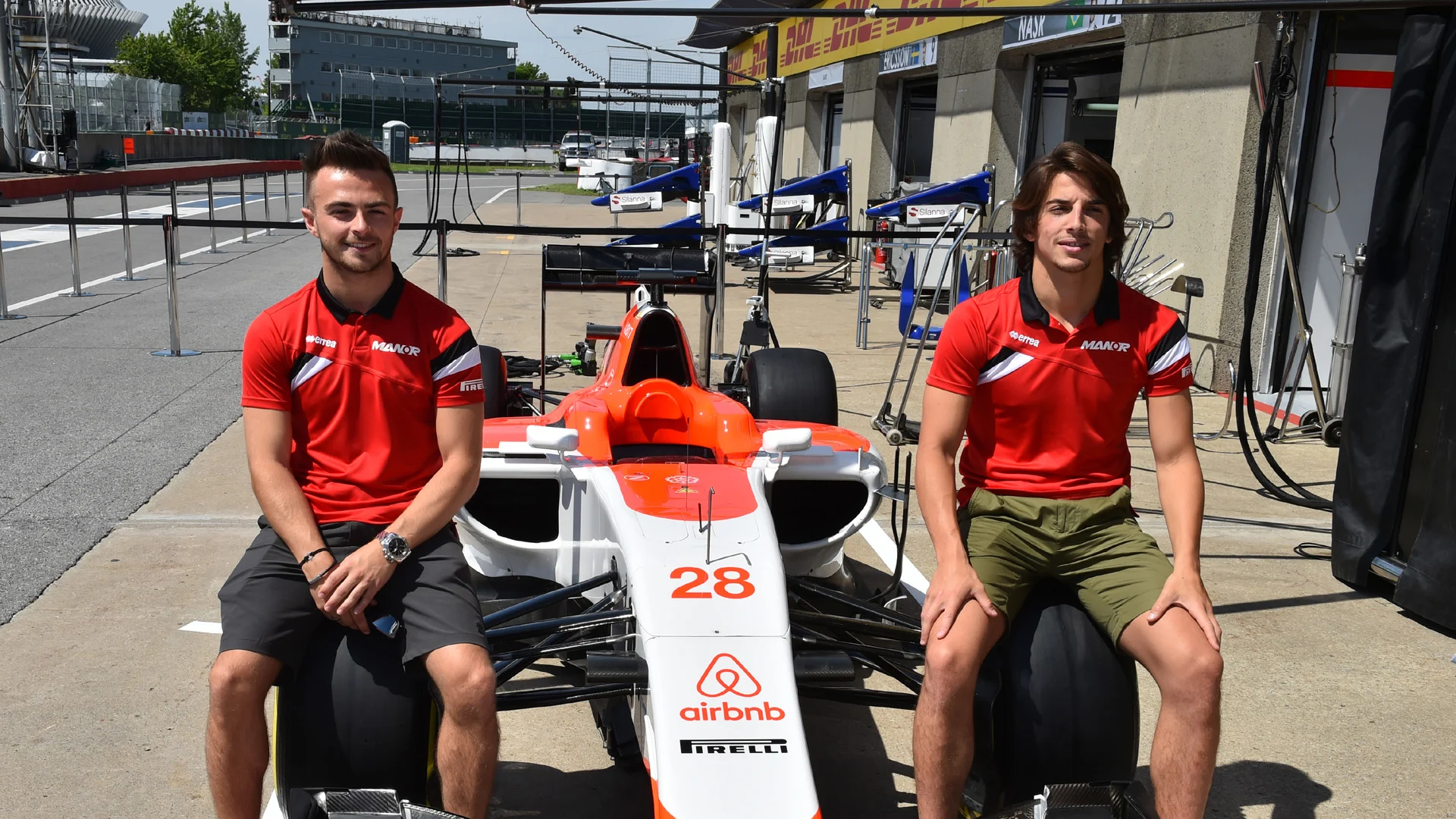
The only person I can beat at the moment is my team mate, and you're always going to have good battles.
Q: Your bosses, John Booth and Graeme Lowdon, have been quick to praise the job you’re doing, but is it disappointing that perhaps the wider world is unaware of how well you’re getting on?
WS: Okay, we’re racing at the back, but the people inside F1 can still see that you’re doing a good job and achieving the maximum you can in the car that you have. So far I think people are seeing that - or at least that’s what I’ve heard. It doesn’t matter where I am on the grid, this year was all about me proving I’m ready to be in F1 and I’m ready to stay in F1. I’m not here just to do a year or a few races - I want to earn a career in F1. So far this year I couldn’t have asked for anymore. I’ve settled into the environment really quickly and I feel comfortable straight away being here. I’m enjoying every minute. I’ve been welcomed into the team and felt at home straight away - I think that’s why the results so far have been strong.
Q: Your team mate is also an F1 rookie. What’s the rivalry been like between yourself and Roberto Merhi?
WS: I’ve known Roberto for ages - my first ever European kart race was against him and that was 10 or 11 years ago. He then took a different career path doing Formula Three and DTM whereas I did World Series [by Renault]. He’s a good guy - he’s competitive and fast. The only person I can beat at the moment is my team mate, and you’re always going to have battles. I personally relish those opportunities because we’re both in the same car and it’s good fun if we’re pushing each other hard. That’s how it should be.
Q: The F1 strategy group recently decided to increase restrictions on driver aids and coaching from this year's Belgian Grand Prix. As a relative newcomer to F1 racing, how do you feel about that?
WS: I haven’t had much experience with it [driving coaching]. Obviously there’s a lot to learn in F1 in terms of procedures, but even after half a year you pick it up so quickly. But if they’re taking away the starting procedures, it depends how much detail they go into. Are they just going to stop the team from telling us what to do? It doesn’t make a difference. We know what to do anyway - the team just tell us [the procedure] to reinforce that we know what we’re doing. Fundamentally everyone down the pit lane does the same thing. Race starts in F1 are very electronically driven, so in terms of us getting a good or bad start it isn’t necessarily down to us. I grew up doing everything - getting a good or bad start was down to whether you did a good or a bad job. I think it’d be good if it was like that. You see now at a race start that everyone gets away the same, more or less.
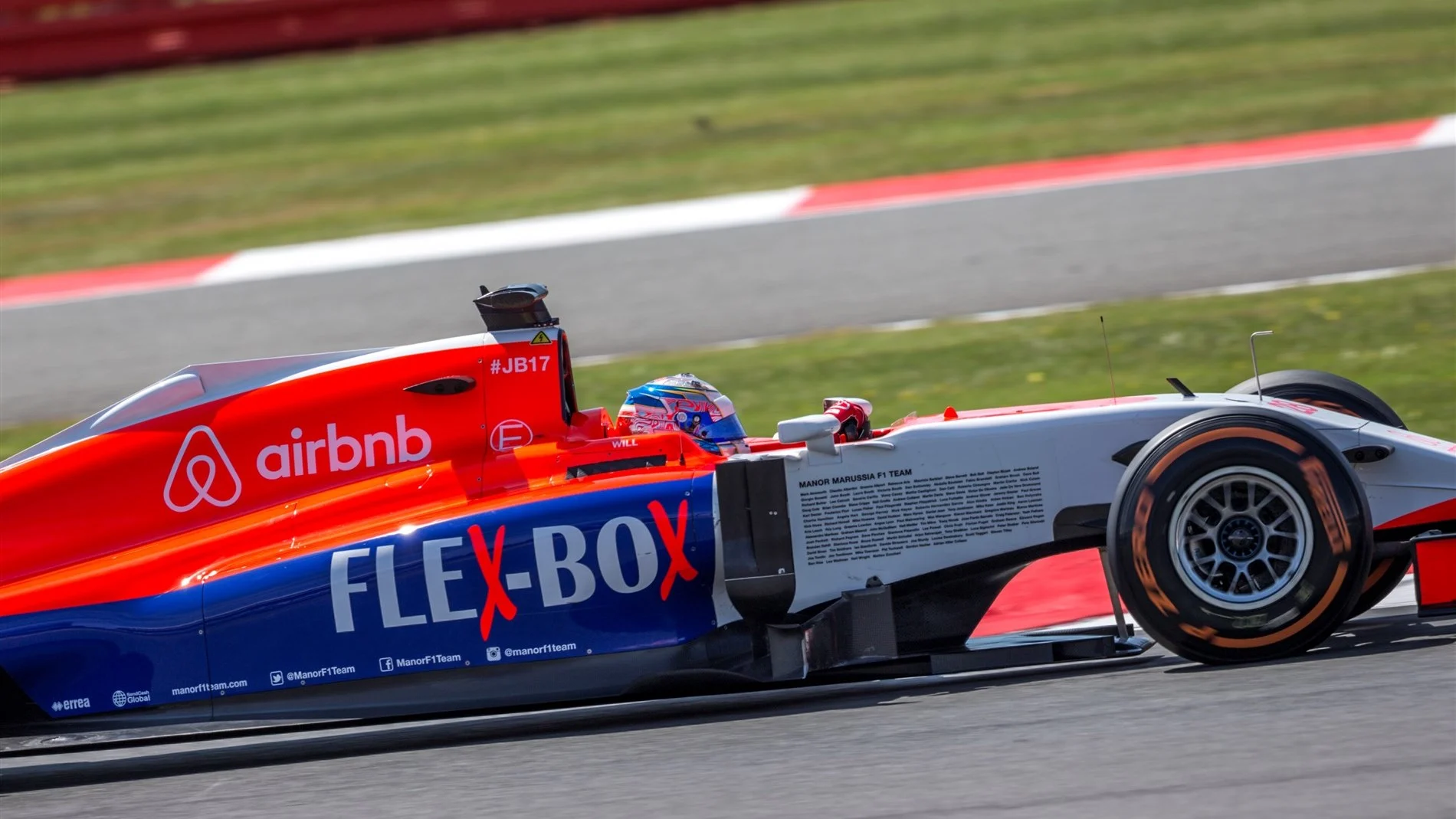
F1's not easy - if you put a normal guy from the street in a car and told him to do five laps he'd be completely destroyed...
Q: There’s also been talk of changing the rules from 2017 onwards to make the cars harder to drive. Would you relish it being more physically demanding?
WS: We [drivers] have grown up training every day. It’s not that F1 is easy - if you put a normal guy from the street into an F1 car and told him to do five laps he’d be completely destroyed. It’s not that they’re easy to drive, it’s because the series below don’t have power steering. The fitness level up and down the pit lane now is, I’m sure, higher than it ever has been. So all those things move on as well. If you just took power steering away the cars would be extremely physical to drive - it’s not that 10 or so things need to be changed. The biggest difference between GP2 and World Series to F1 is power steering. That’s the number one thing. F1 cars have got more downforce so they’re going to be more physical, so you have power steering because it makes it easier. The more downforce you have, the more load on your neck, the more speed, the more force on the tyres, the harder it is to drive. If you take power steering away, F1 cars would be the most physical out there.
Q: You’re midway through your first full F1 season. Are you the sort of driver who lives in the moment or have you already got one eye on what you’ll be doing next year?
WS: I’ve got lots of people working on my behalf to sort all those things out. I’m not different to any other driver - I concentrate on the driving side and there’s other people trying to sort my future out. My job is to focus on what’s happening now and to achieve the best job I can. If I do that it only helps the discussions that everybody is having [on my behalf]. So personally I’m focussed on learning, making sure I’m doing a good job and getting all the information I need to get the most out of the car. Who knows what will happen next year.
Q: Some drivers are very goal motivated. Have you set yourself any goals for the rest of the season?
WS: It’s hard at the moment for us to set goals because it’s not as though I can say ‘I’d like to score some points’. We really have to take each race as it comes. Obviously I want to be ahead of my team mate in every session and every race - that’s all I can really do to prove that I’m ready for F1. In terms of overall goals, for this year it is to look back at the end of the year and be able to say I achieved the maximum I could - and to also have always been ahead of my team mate.
Next Up
Related Articles
 F1 AcademyHaas name Countryman as 2026 F1 ACADEMY driver
F1 AcademyHaas name Countryman as 2026 F1 ACADEMY driver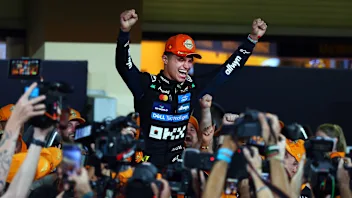 UnlockedQUIZ: 10 questions on the new World Champion Lando Norris
UnlockedQUIZ: 10 questions on the new World Champion Lando Norris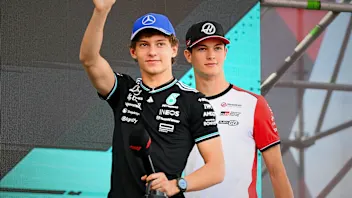 JacquesHow did the rookies do in their first F1 season?
JacquesHow did the rookies do in their first F1 season?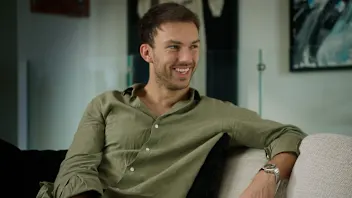 An exclusive look into Pierre Gasly's off-track life
An exclusive look into Pierre Gasly's off-track life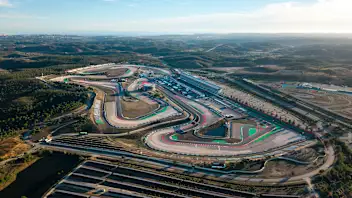 Formula 1 to return to Portugal in 2027 and 2028
Formula 1 to return to Portugal in 2027 and 2028 Celebrating the first F1 Allwyn Global Community Awards
Celebrating the first F1 Allwyn Global Community Awards